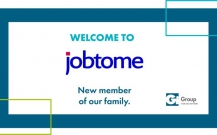APPRENTICESHIPS – FAQ
We appreciate you may have many questions regarding apprenticeships so we have provided answers to some of the most frequently asked
“If an apprentice chooses to undertake training in their own time can this be included in the minimum 20% off-the-job training requirement?”
No, we recognise that some apprentices may want to undertake study or training outside of their normal working hours for their own personal reasons. However training undertaken outside of these hours cannot be counted towards meeting the 20% requirement.
“Is anyone eligible to complete an Apprenticeship?”
Once you’ve identified who might benefit from completing an Apprenticeship, an initial assessment will be completed to determine the potential Apprentice’s existing knowledge in the subject area. The results of this will determine whether that individual will be eligible. A person must also spend more than 50% of their working hours in England to be eligible.
“Does the employer pay for the Apprenticeship?”
This depends on their size, but a company will never pay for 100% of an apprenticeship. All companies with a pay bill of £3m or over are required by law to pay the apprenticeship levy. This money can then be ‘claimed back’ to spend on Apprenticeships.
“We don’t have any money left in our levy but want to put someone through an Apprenticeship, what are my options?”
Companies with unused funds remaining in their levy have the option to transfer this to other companies. Transferred funds can only be used towards training and assessment for apprenticeship standards, and not for apprenticeship frameworks.
“We are a non-levy paying organisation, can we put someone through an Apprenticeship?”
Yes! Non-levy paying organisation can engage in a ‘co-investment’ agreement with the government. This means they will only be required to pay 5% toward the cost of the training and the government will pay the remaining 95%.
“I keep hearing about ‘off-the-job training’, what is this?”
As stated by the Department for Education – “Off-the-job training is a statutory requirement for an English apprenticeship. It is training which is received by the apprentice, during the apprentice’s normal working hours, for the purpose of achieving the knowledge, skills and behaviours of the approved apprenticeship referenced in the apprenticeship agreement. By normal working hours we mean paid hours excluding overtime.”
“How long does an Apprenticeship last?”
Depending on the programme and any previous qualifications, a programme can last anywhere between 12 and 36 months.
“The people I want to put forward already have relevant qualifications, will this matter?”
During the initial assessment the individuals will be asked about any previous qualifications or prior learning. If it is identified that the person has completed a qualification embedded within the apprenticeship in question, it may be the case that they will not benefit.
Alternatively, previous qualifications can be an advantage. For example, if a learner has already passed their functional skills exams at the required level (and can provide the necessary evidence), they will be exempt from this aspect of the programme and can complete the standard alone.
If you have a question that hasn’t been addressed within this document or you require further details please contact us by calling 01246 264928, or email our Head of Employability, Skills and Learning – Kate.Maddison-Greenwell@gigroup.com











